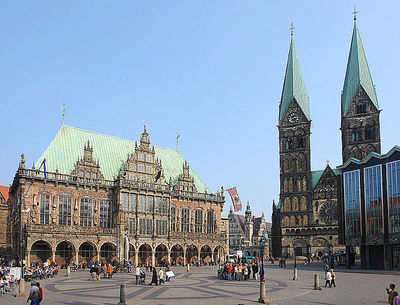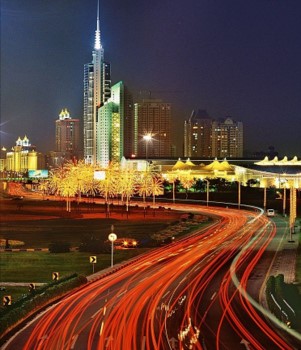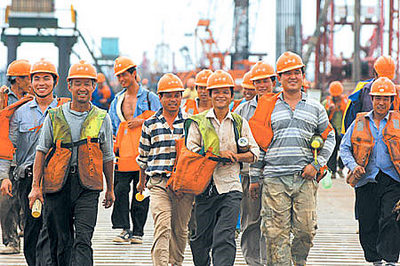
NEXTINSIGHT BRINGS YOU a series of interviews with expatriates who call the southern Chinese metropolis of Shenzhen both their workplace and home.
Our aim is to offer insights into what could be The Next Big Thing – Shenzhen – a city whose GDP growth and population have outpaced those of its richer neighbor, Hong Kong, seemingly since people began paying attention to the big and little dragons’ economic performance in the first place.
We also hope to bring a series of revealing snapshots on just what it takes for non-locals to live and work here, and thrive while doing so.
A common thread linking these industrious expats together is how they have taken the best from their diverse cultural backgrounds to make a name for themselves in a faraway place like Shenzhen.
The Middle Kingdom takes great pride in being a country with 56 officially recognized ethnicities. But among China’s 1.3 bln denizens, the majority Han Chinese still make up well over 90% of the total population.
Despite the fact that the country is no longer building Great Walls to keep foreigners out, expats – especially non-Han residents -- are still a relative rarity in Chinese cities compared to say New York, London or Melbourne.
But the days of putting up walls are a thing of the distant past and cities like Shenzhen, which borders the more cosmopolitan Hong Kong, are beginning to catch up in terms of their expat tallies.
For years, when denizens of Shenzhen or visitors to the southern Chinese city were asked what was the best thing about the place, they would often answer: proximity to Hong Kong.
Not exactly a ringing endorsement.
And when queried on what most irked them about Shenzhen, the same people would frequently cite the city’s relative lack of history.
But things are rapidly changing in this dynamic 10-mln strong city which sports the highest percentage of non-local born residents of all the country’s major population centers.
London, New York and San Francisco of old – which in Chinese translates as “Old Gold Mountain” due to the belief by some in centuries past that the streets of America were indeed paved with the stuff.—were the destination of millions of Cantonese, Fujianese and other immigrants from Cathay looking to find their fortune in far-off, mysterious and more prosperous lands.
Now the hosts are becoming the guests as more and more foreigners seek to improve their lot in China.
In this installment, we meet German expat Jurgen Schaulb, an engineering consultant and relative newcomer to the city with alot of fresh-off-the-plane observations of Shenzhen.
NextInsight: How would you describe the business operating climate where you are now compared to that in your homeland?

Mr. Schaulb: I don’t mean to mention stereotypes, but generally speaking especially perhaps for countries like Germany, there is a general quiet and orderliness to cities. I don’t mean you can’t hear traffic noises in Germany, but perhaps that is the only thing you hear.
However, here it is much more active and loud. There is a much broader use of automobile horns here, especially it seems by buses, and they are quite loud.
Also, for myself, a bike user in Germany, I am still somewhat afraid of trying that here for long distance trips. I am still trying to get used to how traffic works here, and especially the rules of the road.
I think it just takes time, and since I will be here for a couple years on a contract with a company, I am committed to figuring it out. I don’t want to have to take taxis everywhere as not only is it quite expensive, but my Chinese is at a level slightly higher than zero.
As for the business operating climate, I would say that this less ordered and quite loud atmosphere can also be used in the description of the working philosophy here, and perhaps that is part of the reason why China, and Shenzhen certainly, is not in a recession but Germany has been recently.
Maybe this loud energy and activity helps to keep the country’s economy healthy, I can’t say for sure. I am still getting used to living here. However, things change so quickly here, something which would be quite difficult in Germany. So I feel the people are are quite open to change.
What are the most obvious changes you have witnessed or sensed during your time here?
Mr. Schaulb: I have only been here for a couple of months, but perhaps with all the construction and fast growth of the economy that I can witness here, I am sure that likely behind the scenes also there are a lot of changes and transformations occurring that we might not notice daily.
But certainly, I am sure the landscape and profile of the city, the skyline, has changed quite a bit if you take a longer year-long view of the development. This fast a change would be quite odd and impossible in my native country. It seems that views of my city have been the same, or quite similar, for a century or two, especially in some of the older towns.
There is still the same old church in the center of town, and the same old houses. But of course, they have been cleaned up and become more modern. And they also now have big televisions and wireless Internet connections.
If your children (current or future) told you they wanted to settle in your current city (in China), study, work and raise a family here, how would you feel?

Mr. Schaulb: I should first find a girlfriend before you ask me this!
Well, in the future, I would be an unpopular parent if I told my children that they must live and work in Germany, or in nearby countries like Poland or The Netherlands. And they would say: “But you worked in China in 2010, and that is not near home!”
I would not want to have to face that question at that time.
If the economy in the current city where you are slows of softens considerably, would you immediately relocate, or do you feel China is your home and you will ride out the rough times?
Mr. Schaulb: Luckily, my work and also my pay are guaranteed so I am not expecting to have to face this issue.
Also, as I am on a two-year contract, I have also agreed to return home to Germany in 2012, so I am very excited about not only working very hard during my time here of course, but also getting to know more and more about China.
After all, Germany the country is only about 150 years old or so, though there have been Germans in Europe before that of course, maybe for 1,000 or so years. But China says it is 5,000 years old. So, as you can see, there is a lot to learn here. I am not sure I can understand all 5,000 years in just two years, but will try my best.
What are some of the best things about doing business in Shenzhen today? What things would you most like to see changed?
Mr. Schaulb: While I was just sounding somewhat negative on the honking bus horns and somewhat crazy traffic behavior here, I also think like I said that this chaos can be translated into an energy in the office and in the factory.
However, sometimes a successful business needs more than energy. Working overtime will make your boss happy, but the most important thing is still quality and pleasing the customer. After all, it is the customer who pays your salary, not your boss. The boss is merely giving part of what he gets from the customer to you.
So, rather than just energy and chaos, I think offices and factories here also need something more. What is that idea about working long versus working smart? I think efficiency and creativity are more needed here than just workers willing to work, work, work.
In my field, engineering consulting, I think Shenzhen could use more creative engineers and more inventors, and maybe fewer masses of workers just willing to use their bodies all day.
How do you feel about the current residential property prices in Shenzhen for renting? How about for buying? How have you felt about property prices going up/down in your time here?
Mr. Schaulb: I am very lucky as my housing is executed by my firm. This is a big relief to me as I would be very worried about trying to find a home or apartment here. It seems so confusing and also I only speak three sentences of Chinese.
How about the cost of transportation, entertainment, and food/drink?

Mr. Schaulb: In honesty, these things are more expensive than I imagined before arriving in Shenzhen. But still they are much cheaper than in Germany.
Has your income risen at the same rate as inflation (rise of property, entertainment, taxis, food and drink?
Mr. Schaulb: I have a comfortable pay, and I don’t think my contract has any ability to raise my pay. But I am quite happy with the contract. I have heard that people complain about rising prices in Shenzhen. Perhaps I will become one of these people after a year or two, but I honestly hope not.
Is your business doing better, worse, or the same as when you first began working in Shenzhen? Why do you think that is? What are your plans to improve your business in Shenzhen over the next year?
Mr. Schaulb: As Shenzhen is constantly changing in terms of its skyline, this signifies that there is a lot of work for engineering firms at present here. So I can imagine that my company will have several contracts accumulated during my time here, and both parties can really benefit from working together.
Have you gotten the investment bug and put some of your hard-earned money in the market?
Mr. Schaulb: I have done investing in stocks back when I was in Germany. However, I am not yet comfortable doing so here, because all the information seems to be in Chinese. Well, I am in China, so that is not surprising!
But I mean that in order for me to feel comfortable about buying part of a company on the stock market, I really feel I must fully understand it, and know if it is a winner or a loser, or perhaps something else. But actually, if I could tell you which companies were winners and which were not, I could change my job from engineer to a stockbroker.
So, after I get more used to here, and my job, I may investigate perhaps some opportunities in certain companies.
Read an earlier story about a US expat helping bring a spirit of innovation to Shenzhen







